Return to the search form Return to your search results
Nagoya University of Foreign Studies Exchange
Fast Facts
Sessions Offered:
Fall, Spring, Academic Year, Calendar Year
Location:
Nagoya, Japan
Credit:
Transfer
Eligibility:
Good academic and disciplinary standing; 3.0 GPA; refer to the Application tab for more details
Application Due:
Fall & Academic Year:
Mar. 1
Spring & Calendar Year: Oct. 1
Program Cost:
Refer to the Application tab for more details
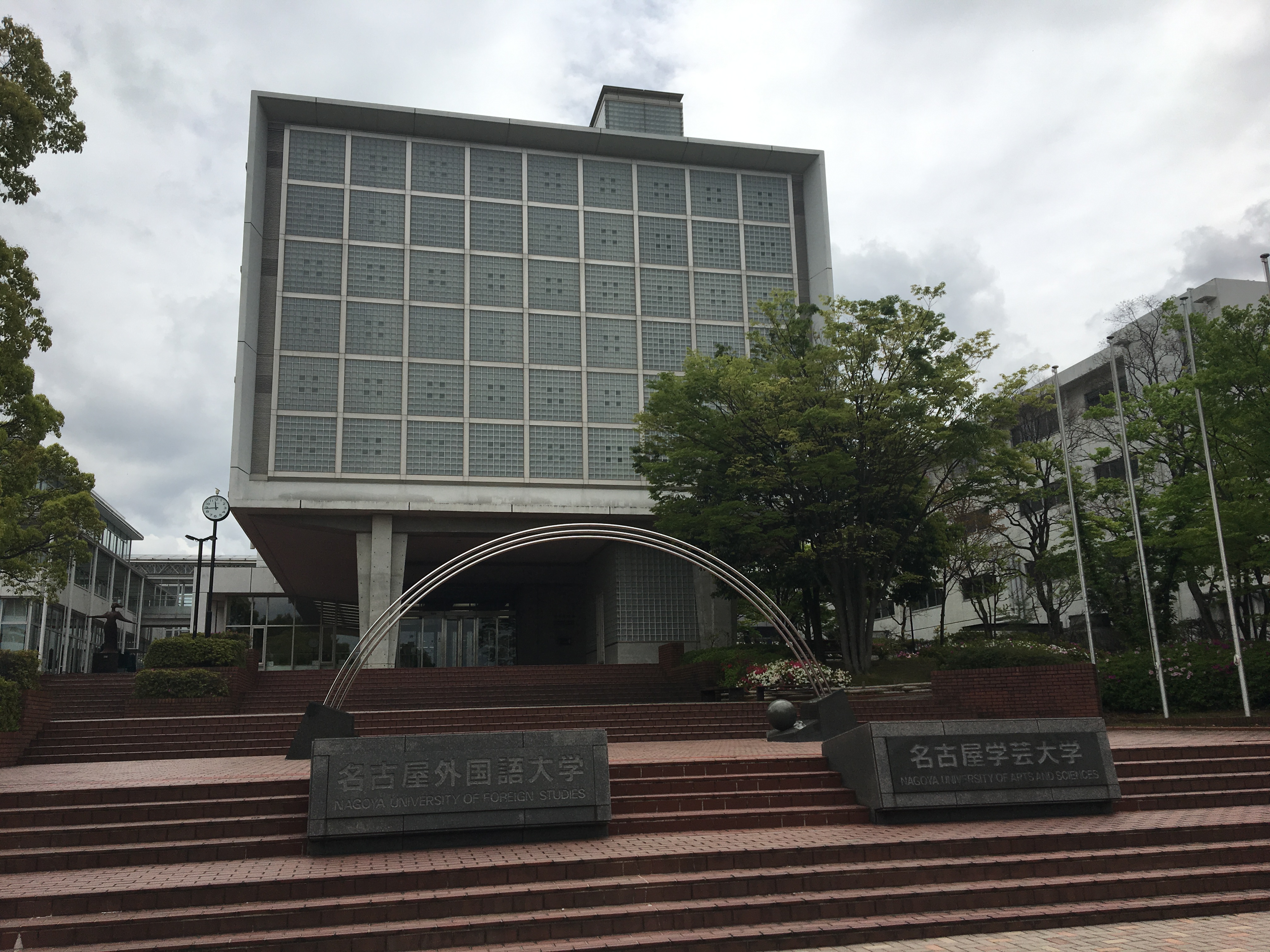
Nagoya University of Foreign Studies
The Nagoya University of Foreign Studies (NUFS) Exchange program allows University of Iowa students to undertake a semester, academic year, or calendar year of study in NUFS' Global Japan Program, part of the university's International Institute for Japanese Language and Education (IJLE). The curriculum of the Global Japan Program enables students to develop their Japanese language skills and take English-taught coursework in topics related to Japanese culture, history, and business.
Note: The purpose of this student exchange is to facilitate an educational experience in an unfamiliar environment for participating students. To that end, students are not eligible to return to their home country to study through this exchange program.
Academic Program
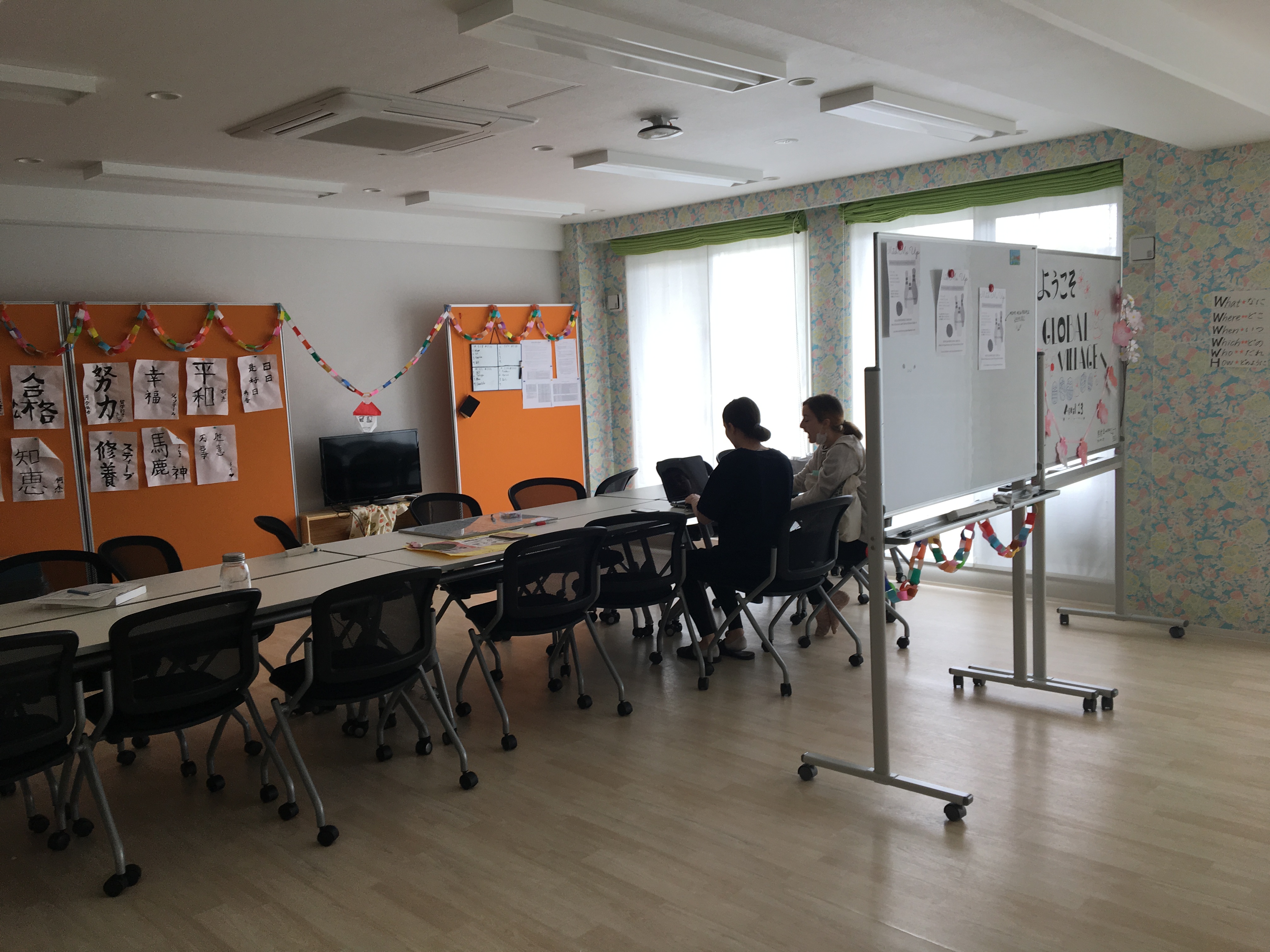
This exchange is suitable for students of any major interested in developing their Japanese language skills and learning about contemporary Japan. In the Global Japan Program, students take Japanese language core courses that focus on speaking, listening, writing and reading with Kanji. Student will enroll in one core course with their level being determined by a language placement test. Core courses are available from 8 s.h. to 16 s.h.
Students can also enroll in JL Elective courses (taught in Japanese) and Global Japan Studies courses (taught in English). These courses are typically 2 s.h. each.The Global Japan Program website contains additional information about coursework.
Exchange students are required to take a minimum of 12 s.h. per semester and are able to take up to 18 s.h. per semester while studying at NUFS. Credit received from NUFS will be treated as transfer credit. Japanese studies courses at NUFS are 2 s.h. each and therefore cannot be used to satisfy General Education requirements within the UI College of Liberal Arts and Sciences or Tippie College of Business. Students interested in using NUFS coursework to fulfill UI major, minor, or certificate requirements should speak with their academic advisor before applying for this exchange program.
Cultural Activities

NUFS encourages exchange students to explore Japanese culture by offering a variety of regularly scheduled group activities. International students can take workshops related to flower arranging, tea ceremonies, noodle making, and Zen meditation; participate in day trips to a ninja village, shrines, sumo games, museums, and other notable sites; and participate in an overnight tour (offered once each semester) to locations like Kyoto, Eiheiji Temple, or Shirakawa Village. These non-credit elective activities may be free or available for a small fee.
Program Dates
Fall Semesters are typically from late August through mid-December.
Spring Semesters are typically from early/mid-March through mid-July.
For More Information
Steps to Studying Abroad
- Before initiating an application with NUFS, students must complete a Discover Study Abroad session at the University of Iowa.
- After completing the Discover Abroad session, students will receive an email with their study abroad advisor assignment.
- Once assigned, students must meet with their study abroad advisor to receive program application instructions.
Study Abroad
1111 University Capitol Centre
Iowa City, IA 52242
Phone: 319-335-0353
Email:study-abroad@uiowa.edu
Nagoya University of Foreign Studies (NUFS)
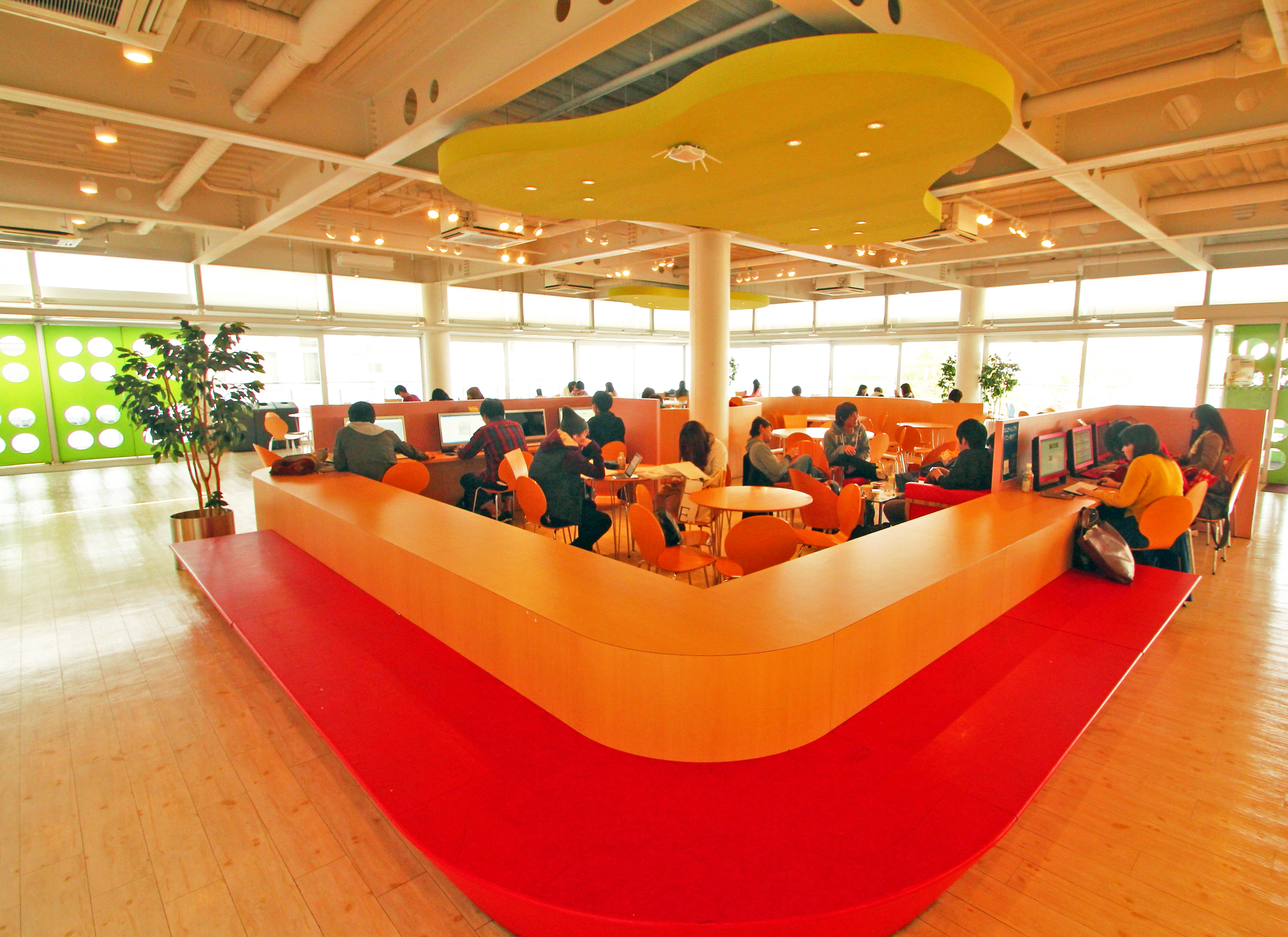
A Swanky Student Lounge
NUFS is the only university focused on foreign studies in the central Chubu region of Japan and demonstrates a commitment to internationalization by specializing in foreign language instruction, welcoming international students from around the world, and sending a large number of students abroad to study. International students are NUFS are supported by the university's International Office (IO), which facilitates orientation and cross-cultural language exchange programs, provides interpretation services during medical appointments, connects students with counseling services, addresses issues related to campus housing, and helps students navigate everyday life in Nagoya.
Nagoya

The city of Nagoya, completely rebuilt after the war, is noted for its comprehensive city planning projects. It is Japan's fourth largest city, home to industrial powerhouse Toyota, and capital of Aichi prefecture, located in the central Honshu region. Excellent air, road, and rail services provide convenient access to locations throughout the country. Nagoya's history dates back to the 17th century, when Tokugawa Ieyasu, the general credited with unifying Japan, built a castle in the city. Nagoya Castle has since been reconstructed and is a common attraction for visitors.
Japan
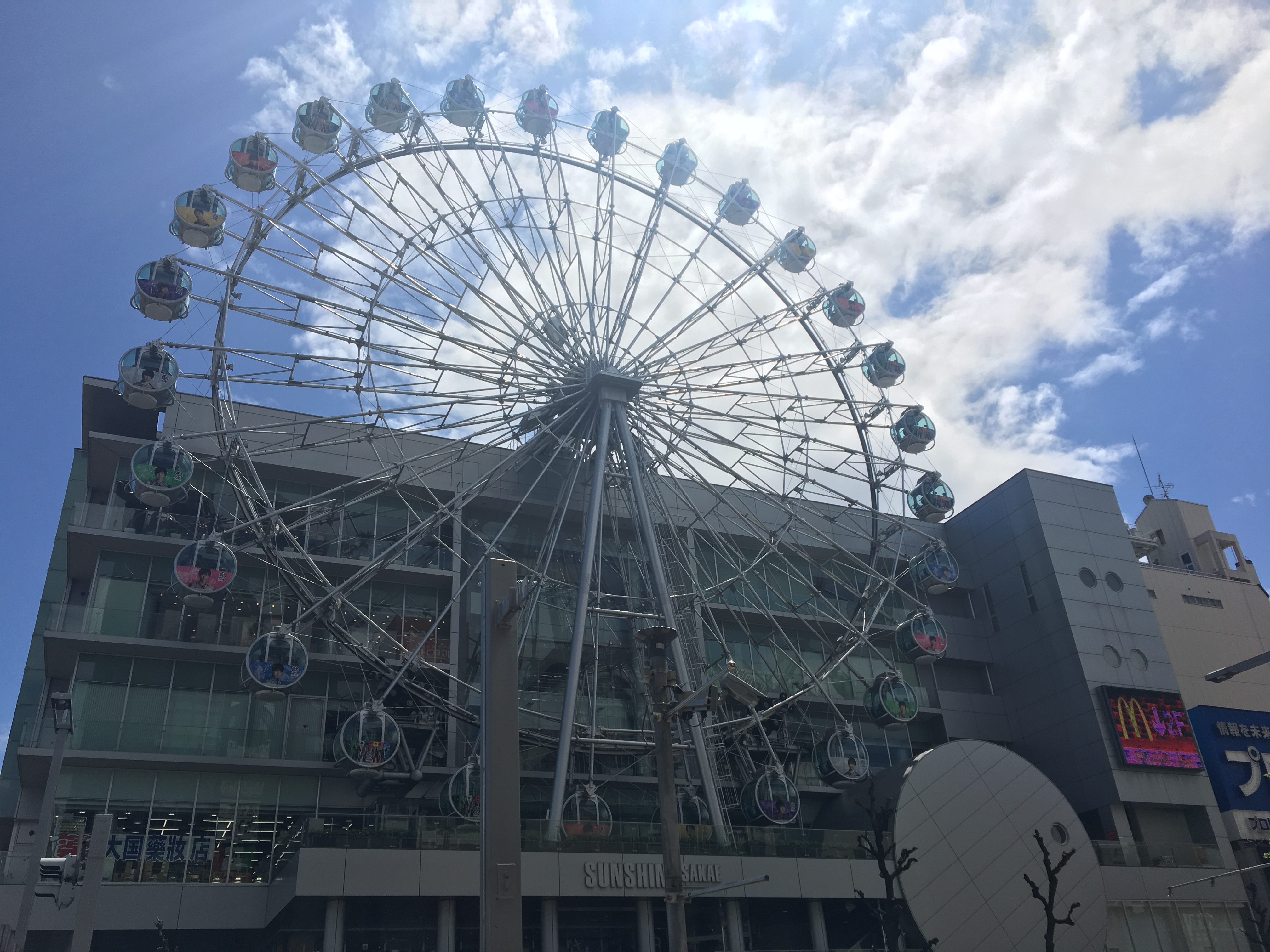
Japan is an island country in East Asia, located in the northwest Pacific Ocean. Japan is the world’s tenth largest country by population, with 127.3 million people. Tokyo, Japan’s capital city, is the world’s largest metropolitan area, with a population of 32.5 million people. Japan is the world’s third largest economy. Japanese companies in the top 100 of the Fortune ranking include Toyota Motor, Honda Motor, Nissan Motor, Panasonic, Sony, and Toshiba.
US Department of State Country Information
The US Department of State provides safety and security information for every country of the world to help you assess for yourself the risks of travel. Each country information page contains a Travel Advisory, Alerts, and other important details specific to that country that could affect you.
Pay close attention to the entry and exit requirements, local laws and customs, health conditions, and other details to help decide whether traveling to any given country is right for you. Non-US citizen travelers may also wish to seek guidance from the embassy of their country of citizenship. The UI International Travel Policy for Students addresses restrictions on student travel to high-risk locations and engagement in high-risk activities abroad.
Living Arrangements
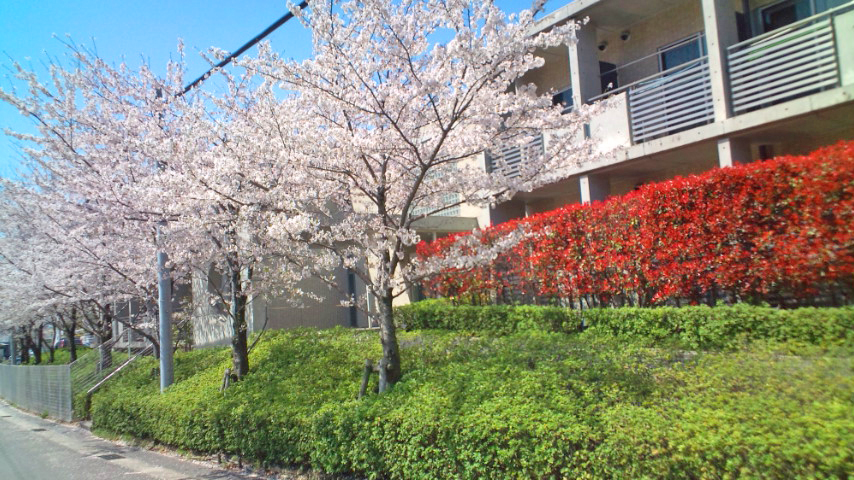
I-House Dorms
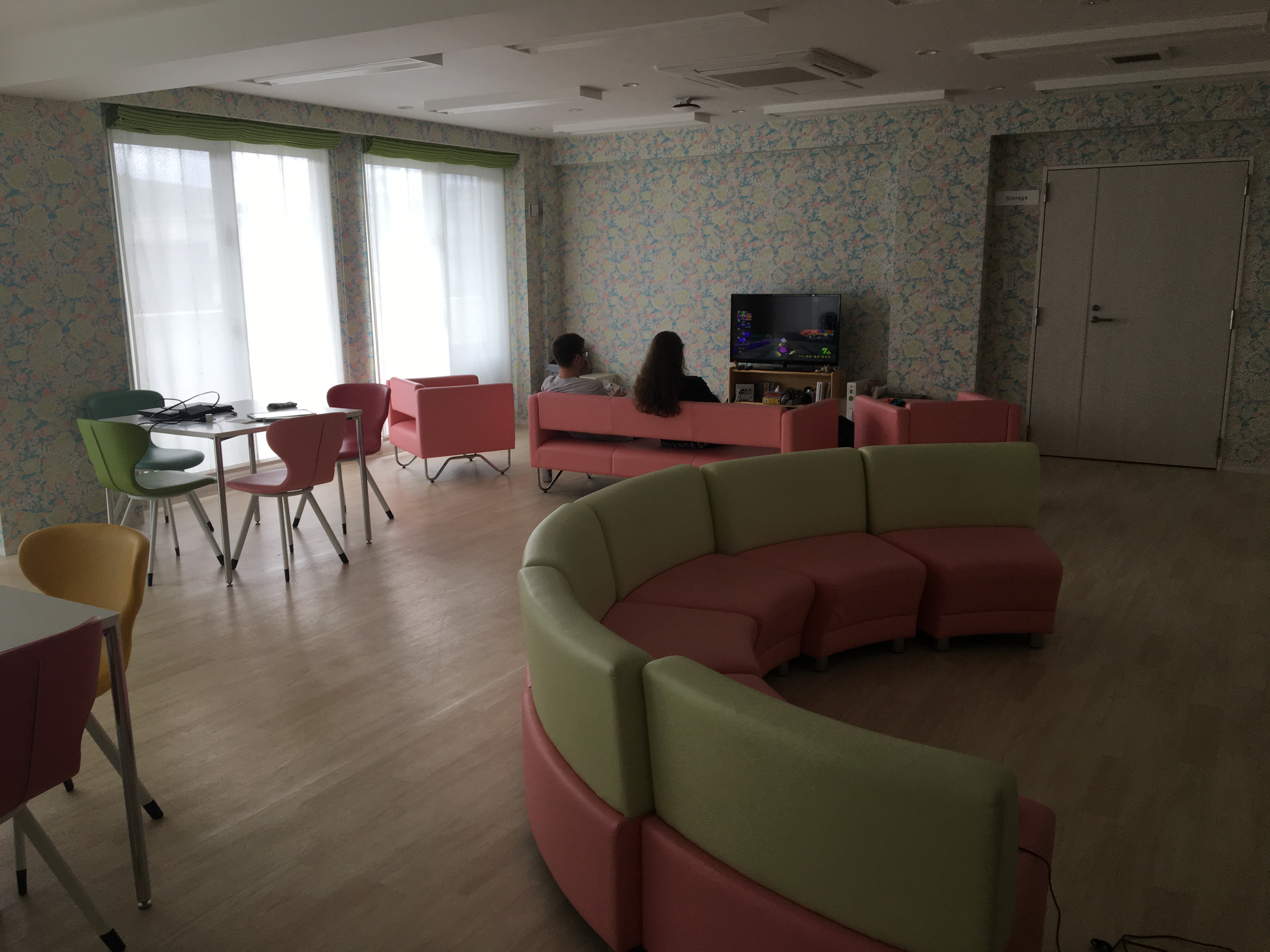
All exchange students are guaranteed housing, a single room with a private bathroom, in one of NUF’s three accommodation facilities. Exchange students have multiple options for student housing at NUFS. All available dorms are in close proximity to the main campus. There are resident assistants (RAs) and dorm managers present in all dorms to help students if needed.
- NUFS International House (I-House) is a dorm for international students located about 5 minutes on foot from campus. Here students have a single room with a private bathroom and shower. Students have access to common room areas, a patio, a shared kitchen, and laundry facilities. This dorm has an 11pm curfew.
- NUFS Global Village is the newest dorm facility available to exchange students. This dorm is within walking distance from campus. Here students have a single room with a private bathroom and shower. Each floor has a shared kitchen, and there is a common room available as well. Students will also have access to communal laundry areas. This dorm does not have a curfew, but they do have quiet hours after 10pm.
- NUFS-NUAS Residence is within walking distance from campus. This dorm building offers students a single room with a private bathroom and shower. These rooms are also equipped with a kitchenette and a washing machine. This dorm does not have a curfew.
Students should first consider NUFS International House (I-House) and NUFS Global Village, as these dorms provide more opportunities for relationship building and social events which help with cultural and language immersion.
Cost information and photos of each housing option are available in the Student Housing section of the NUFS website. Please note that students must pay NUFS directly for their housing costs each semester.
Passport
If you do not have a passport, it is important that you apply for one as soon as possible to ensure you receive it before the program begins. US citizens can find more information about how to apply for a passport on the US Department of State’s website.
Important notice for students without a valid passport or whose passport will expire within the next 12 months:US citizens can find more information about how to renew a passport on the US Department of State’s website.
Students with a valid passport should check the expiration date. Passports must be valid for at least 6 months AFTER the anticipated return to the US from studying abroad. If your passport is not valid for at least 6 months after your anticipated date of return to the US, you must renew your passport before applying for the visa you will need to enter your host country.
Expedited processing service is available for US passports (although this still takes several weeks and is at an additional cost). UI Study Abroad encourages students to ask the passport agency at the time of application whether expedited service is recommended.
Non-US Citizens
Students who are not US citizens should contact their consulate for more information if they need to get a new passport or renew their passport.
Travel Arrangements
Students are advised NOT to purchase airline tickets until they receive acceptance confirmation from both UI and NUFS. If you have questions and/or concerns, please contact the UI Study Abroad Advisor at 319-335-0353.
Students are expected to find their own flights to Japan, though UI Study Abroad can assist by providing advice regarding airline booking options. NUFS will provide accepted students with more information on arrival details closer to the date of departure.
Local Transportation
NUFS is located in the northeastern part of Nagoya close to other universities. For those wishing to reach downtown Nagoya, NUFS is a quick walk or short bus ride from the subway station. The subway system is very user friendly, and there are also plenty of buses and taxis.
Eligibility
The NUFS Exchange is open to UI students of all majors who have an interest in Japanese language and Japanese studies and fulfill the following requirements:
- Clear interest and commitment: Students must demonstrate a clear academic or personal interest in the program's subject matter and a commitment to engage responsibly in coursework abroad.
- Preparedness and maturity: Students must demonstrate preparedness to take on the heightened responsibilities associated with international study and travel. Students must demonstrate a commitment to behave responsibly abroad while respecting cultural differences. Students are expected to obey both local laws and program directives conveyed to participants before and during the program. The University of Iowa Code of Student Life applies to all program participants while abroad.
- Minimum 3.0 cumulative GPA: Students must have at minimum a 3.0 cumulative GPA to participate in this program.
- Good academic and disciplinary standing: Students must be in good academic and disciplinary standing at the University of Iowa. Academic and disciplinary history will also be considered when determining whether a student is prepared to represent the University of Iowa as part of this program. Students who, even after being accepted into a program, are put on either academic and/or disciplinary probation for any period of time overlapping with the study abroad program dates are ineligible to study abroad. In these cases, students must forfeit their acceptance, will not be allowed to study abroad and are wholly responsible for any and all financial expenses incurred.
- Sophomore, junior, or senior standing: Students must have sophomore, junior, or senior standing at the time the program begins. First year students cannot participate in this program.
- Approval of UI Study Abroad advisor: A student's application must be reviewed and approved by their UI Study Abroad advisor.
- Acceptance by host institution: The number of participants is limited by reciprocity in the numbers to be exchanged, and meeting the minimum requirement for eligibility does not guarantee acceptance into the program. Even if a student is nominated by their UI Study Abroad advisor to participate in the exchange, the final acceptance decision is made by the international student office and the sponsoring departments at NUFS based on their own internal requirements.
Costs
Tuition
University of Iowa students pay their regular University of Iowa tuition and mandatory student fees and study at our partner university without further tuition payment. However, students should be prepared to pay the host university directly for certain expenses, such as housing. These expenses are included in the program cost sheet (more information below).
Study Abroad Administrative Fees
University of Iowa study abroad administrative fees are charged for all participants. They are based on tuition set by the Iowa Board of Regents. Please check the Costs of Study Abroad page for more information on these administrative fees.
Cost Sheets
Cost sheets are documents that outline the total estimated costs associated with participating in this program and can be used for financial aid purposes. They include fees charged on students’ U-Bill, as well as out-of-pocket expenses. Actual out-of-pocket expenses will vary from individual to individual. Quoted estimates are conservatively high, yet realistic.
The cost sheet includes the Study Abroad Administrative Fee and Mandatory Iowa Regents CISI Travel Insurance. Please see the respective websites for further details. Please contact your UI Study Abroad Advisor with questions regarding this cost sheet by calling 319-335-0353 to schedule an appointment.
 Cost Sheet NUFS Spring 2025-CLAS students
Cost Sheet NUFS Spring 2025-CLAS students Cost Sheet NUFS Fall 2025- CLAS students
Cost Sheet NUFS Fall 2025- CLAS studentsScholarships & Financial Aid
For more information about receiving financial aid while studying abroad, please review the following:UI Financial Aid Information
You can find more information about options for funding your study abroad experience including scholarships on Undergraduate Scholarships for Study Abroad.
How to Apply
Spots for UI students: Enrollment for the Fall 2026 semester is limited to 1 semester student.Interested students should make an appointment with the designated UI Study Abroad Advisor to discuss the program and the application process. Appointments can be scheduled by calling 319-335-0353. During the appointment, the advisor will provide full application instructions. Note: Application materials will not be reviewed unless a student has already met with the advisor to discuss the program.
The application process consists of three major steps:
Application Deadline
Applications for the Spring Semester and Calendar Year Programs are due on Oct. 1.
Applications for the Fall Semester and Academic Year Programs are due Mar. 1.
Health & Safety Planning
In addition to submitting their Confirmation of Participation form, students should review the following:
Iowa Regents CISI Health Insurance Information
Students are also encouraged to complete the Health Preparation Guide for International Travel form with their medical practitioner. This document is intended to help you plan for your medical needs abroad. Please DO NOT turn this form in to UI Study Abroad.
Health Preparation Guide for International Travel form with their medical practitioner. This document is intended to help you plan for your medical needs abroad. Please DO NOT turn this form in to UI Study Abroad.
Important: Students who are studying abroad in Japan should apply early for a Yakkan Shoumei certificate to be able to bring a supply of medication into Japan. For more information and instructions, please visit the website of the U.S. Embassy & Consultates in Japan. The site contains the application for a Yakkan Shoumei certificate.
Visa
Any students who will need to apply for a Japanese visa will need to wait until receiving their official admission letter from NUFS before they can begin applying for a visa. UI Study Abroad staff can provide some assistance and advising on the Japanese visa application process, but ultimately the individual traveler (the student) is the person who is responsible for providing correct information on the visa application and securing the visa and all other required documentation prior to travel.
Orientation
In order to prepare for your time abroad, you are required by the University of Iowa to complete two orientations. These may be in addition to orientations provided by the host university. See below for more information.
Online Education Abroad Pre-Departure Orientation
You are required to complete the International Programs online “Education Abroad Pre-Departure Orientation” course distributed through ICON prior to departure. This orientation is mandatory for all students going abroad under the auspices of the University of Iowa. It covers many practical matters about living overseas, such as health and safety, communication, money, goals and much more. You will be enrolled in this course by International Programs and an email will be sent to you once enrolled. If you have any questions, you can email safety-abroad@uiowa.edu
Program-Specific Orientation
This orientation will be facilitated by your UI Study Abroad advisor and will cover content specific to your program and host country. It could be conducted in a group setting or one-on-one depending on your type of planned activity abroad. Your advisor will send you more information about this mandatory in-person session.
